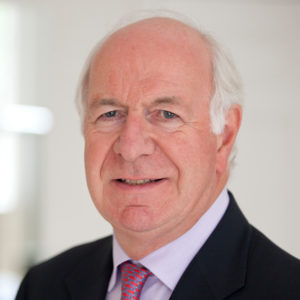This year’s IMAGE Nurses’ Knowledge Centre is an invaluable collection of resources focusing on transgender management, calcium and bone disorders, and the genetics and treatment of growth disorders.
Our expert faculty will discuss key issues relating to these topics together with their impact on the clinical responsibilities of paediatric endocrine nurses. Nurse presenters will have a key role, presenting cases and giving talks based on their personal experience. The programme has been designed to include all healthcare professionals and be relevant to their clinical practice.
All content is freely accessible to view at your own convenience.
Webcast
The live webinar took place on 9th February 2023. Here, our panel of experts provide an overview of the teaching content on transgender management, bone health and growth disorders. Their discussion gives further insight into these key topics, with a particular emphasis on nursing perspectives, and they debate questions posed by those working in the field.
Agenda
- Welcome and introduction: Kate Davies
- Transgender management – key learning objectives: Martin Savage
- Transgender management: panel discussion and Q&A: Gary Butler, Paul Carruthers and Stephanie Kemp, chaired by Martin Savage
- Bone health – key learning objectives: Kate Davies
- Bone health: panel discussion and Q&A: Justin Davies, Raja Padidela and Ian Tucker, chaired by Kate Davies
- Growth disorders and genetic studies – key learning objectives: Martin Savage
- Patient choice in the context of long-acting growth hormone :Lee Martin
- Growth disorders: panel discussion and Q&A: Kate Davies, Helen Storr and Lee Martin, chaired by Martin Savage
- Concluding remarks: Martin Savage
Teaching content
Transgender management
Current endocrine strategies in transgender adolescents – Gary Butler
Supporting gender diverse young people – Paul Carruthers
Gender Dysphoria: a case study – Stephanie Kemp and Gary Butler
Bone disorders
Bone health in chronic paediatric disorders and cancer survivors – Justin Davies
Metabolic bone disorders – Raja Padidela
Funny Bones! A paediatric bone disorders case study – Ian Tucker
Growth disorders
Growth hormone therapy: past, present and future – Martin Savage
Contribution of genetics to the diagnosis of short stature – Helen Storr
Modes of action of GnRH analogues in growth and puberty disorders – Kate Davies
Prise en charge des personnes transgenres
Current endocrine strategies in transgender adolescents – Gary Butler
Supporting gender diverse young people – Paul Carruthers
Gender Dysphoria: a case study – Stephanie Kemp and Gary Butler
Troubles osseux
Bone health in chronic paediatric disorders and cancer survivors – Justin Davies
Metabolic bone disorders – Raja Padidela
Funny Bones! A paediatric bone disorders case study – Ian Tucker
Troubles de la croissance
Growth hormone therapy: past, present and future – Martin Savage
Contribution of genetics to the diagnosis of short stature – Helen Storr
Modes of action of GnRH analogues in growth and puberty disorders – Kate Davies
Transgender-Management
Current endocrine strategies in transgender adolescents – Gary Butler
Supporting gender diverse young people – Paul Carruthers
Gender Dysphoria: a case study – Stephanie Kemp and Gary Butler
Knochenerkrankungen
Bone health in chronic paediatric disorders and cancer survivors – Justin Davies
Metabolic bone disorders – Raja Padidela
Funny Bones! A paediatric bone disorders case study – Ian Tucker
Wachstumsstörungen
Growth hormone therapy: past, present and future – Martin Savage
Contribution of genetics to the diagnosis of short stature – Helen Storr
Modes of action of GnRH analogues in growth and puberty disorders – Kate Davies
Manejo de pacientes transgénero
Current endocrine strategies in transgender adolescents – Gary Butler
Supporting gender diverse young people – Paul Carruthers
Gender Dysphoria: a case study – Stephanie Kemp and Gary Butler
Trastornos óseos
Bone health in chronic paediatric disorders and cancer survivors – Justin Davies
Metabolic bone disorders – Raja Padidela
Funny Bones! A paediatric bone disorders case study – Ian Tucker
Trastornos del crecimiento
Growth hormone therapy: past, present and future – Martin Savage
Contribution of genetics to the diagnosis of short stature – Helen Storr
Modes of action of GnRH analogues in growth and puberty disorders – Kate Davies
Meet the experts
Chairs
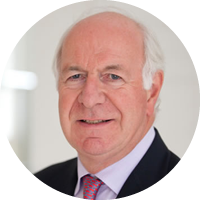
Professor Martin Savage
Emeritus Professor of Paediatric Endocrinology, William Harvey Research Institute, Barts and the London School of Medicine, Queen Mary University London, London, UK
Martin Savage is Emeritus Professor of Paediatric Endocrinology at William Harvey Research Institute, Barts and the London School of Medicine & Dentistry, Queen Mary, University of London. He was head of the Paediatric Endocrine Unit at Barts and the London School of Medicine from 1982 to 2007. He is a clinician with research interests in growth disorders, specifically those with abnormalities in the growth hormone-IGF-1 axis. His main research field has been the phenotype-genotype relationships of GH-IGF-1 axis defects, notably GH resistance. He published the first human case of an IGF-1 gene defect in the New England Journal of Medicine in 1996. His other clinical interests are Cushing’s syndrome and growth in chronic inflammatory diseases. He was General Secretary of the European Society for Paediatric Endocrinology (ESPE) from 1997 to 2004.
Professor Savage has lectured in 60 countries world-wide and has published 470 original articles, reviews, textbook chapters and books. In 2007, he was awarded the ESPE Andrea Prader Prize for contributions to paediatric endocrinology and in 2018 he received a Visionary Award from the American Human Growth Foundation. He continues to lecture nationally and internationally.
Disclosures
Professor Savage has held consultancies with Sandoz, Pfizer, Springer Healthcare, Visen, Scientific Seminars, Gene Sciences and Merck Healthcare KGaA, Darmstadt; he has received honoraria for lectures from Novo Nordisk, Ipsen and Ascendis.

Kate Davies
Associate Professor, Paediatric Prescribing & Endocrinology, London Southbank University, London, UK
Kate has been a children’s nurse since 1994, working in general paediatrics, paediatric ICU and neuroscience before specialising in paediatric endocrinology in 2000. She has focused on advancing her education by studying for a BSc (Hons) in Psychology, an MSc in Occupational Psychology and an MSc in Professional Healthcare Research, as well as advancing clinical skills including Non-Medical Prescribing. She is a qualified Children’s Advanced Nurse Practitioner and a Nurse Teacher.
Kate is well-known internationally within paediatric endocrinology, having presented and published widely. She has sub-specialised in growth and puberty, neuro-endocrine late effects of childhood brain tumours, adrenal disorders and differences of sex development. Kate commenced her PhD in Nursing in 2021, focusing on monitoring in young people with congenital adrenal hyperplasia.
Kate has always been passionate about educating staff and students, and started at London South Bank University, the UK’s leading University for training children’s nurses, as a Senior Lecturer in Children’s Nursing in September 2015. She launched the new BSc/MSc module ‘Principles of care for the child and young person in endocrinology’ in January 2017, and has run four successful intakes, with a 100% pass rate each time. She now leads the UK’s only paediatric Non-Medical Prescribing programme, and is Associate Professor in Paediatric Prescribing and Endocrinology.
Disclosures
Grants/research support from the Society of Endocrinology. Honoraria from pharmaceutical companies: Ipsen, Pfizer, Sandoz and Novo Nordisk.
Speakers

Professor Gary Butler
Consultant in Paediatric and Adolescent Endocrinology, University College Hospital, London, UK
Professor Gary Butler is Consultant in Paediatric and Adolescent Endocrinology at University College Hospital in London and holds an Honorary Personal Chair in Paediatrics at the UCL Great Ormond Street Institute of Child Health.
He qualified at St Thomas’s Hospital Medical School in London and, after junior positions in paediatrics, trained in paediatric endocrinology in Edinburgh at the Medical Research Council (MRC) Human Genetics Unit and the MRC Reproductive Biology Unit, and also at the Edinburgh Royal Hospital for Sick Children. His principal research interests were growth and puberty in boys with extra X and Y chromosomes (doctoral MD thesis), the process of normal growth, its treatment with growth hormone and testosterone, and the neuroendocrine control of puberty.
After working in Cardiff, Leeds and Reading, Professor Butler returned to London and established an adolescent endocrine service at University College London Hospitals (UCLH) with a focus on disorders of puberty with specialist clinics for gonadotropin deficiency, Klinefelter syndrome and growth disorders. He was the principal endocrinologist leading the redesign of the UK growth charts. He is the clinical lead for the adolescent Gender Identity Development Service in England taking an international lead in the standards of care for transgender children and adolescents.
As a result of this and his other achievements in paediatric endocrinology, he received the European Society for Paediatric Endocrinology Outstanding Clinician Award in 2020.
Disclosures
Nothing to disclose
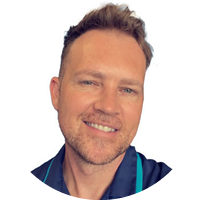
Paul Carruthers
Lead Nurse, Gender Identity Development Service & Children's Endocrine Nurse Specialist Team, Leeds Children’s Hospital, Leeds, UK
Paul qualified as a sick children’s nurse from Leeds University in 2004 and began his nursing career in paediatric cardiology. Paul then worked in the community setting in various roles such as a children’s community nurse, inclusion nurse and school nurse. Strong interests in public health steered him to complete a degree in the Specialist Community Pubic Health Nurse course, which led him to specialise in safeguarding and teenage sexual health. An interest in higher education resulted in Paul qualifying as a practice teacher supporting post-graduate school nursing students. He currently works as the Lead Nurse in the Gender Identity Development Service (GIDS) and paediatric endocrinology at Leeds Children’s Hospital. As a non-medical prescriber, Paul runs his own clinics and enjoys the clinical work this entails. Away from work Paul is a busy dad and enjoys cycling.
Disclosures
Nothing to disclose.

Justin Davies
Consultant Paediatric Endocrinologist, Southampton Children's Hospital, Southampton, UK
Professor Justin Davies is a Consultant Paediatric Endocrinologist and holds a personal Chair at Southampton Children’s Hospital and the University of Southampton. He is the Service Lead for paediatric endocrinology at Southampton and also leads the Paediatric Metabolic Bone service with a multidisciplinary team dedicated to rare bone disease and childhood osteoporosis. His research interests include secondary osteoporosis, impact of disease on body composition and imprinting disorders.
Professor Davies was Chairman of the British Society of Paediatric Endocrinology and Diabetes 2016-2020. He is the service lead for the European Reference Centre – Southampton for Rare Bone Disease and Endocrinology (Growth disorders). His other national roles have included the Secretary of the British Paediatric and Adolescent Bone Group and Treasurer of the British Society of Paediatric Endocrinology and Diabetes. Professor Davies leads an international school for paediatric endocrinology – the European Society for Paediatric Endocrinology, Winter School.
Disclosures
Honoraria from Kywo Kirin and Springer; travel bursary from Novo Nordisk.

Stephanie Kemp
Gender Nurse Clinician, British Columbia’s Children’s Hospital, Vancouver, Canada
Stephanie Kemp (she/her), RN, BSN trained as a nurse at the University of British Columbia. She felt moved to be a nurse to help people thrive with their health. She has worked in many areas of nursing over her 18-year career, including paediatric post-operative surgery, IV team, paediatric emergency, community paediatric nursing, primary care, and most recently paediatric gender affirming care. She is inspired by the youth and families she works with who are taking steps to live their truest self – something she strives to do herself. When she’s not at work she enjoys spending time with her wife and two young children, enjoying the beauty of the West Coast of Canada.
Disclosures
Nothing to disclose.

Lee Martin
Clinical Nurse Specialist in Paediatric Endocrinology, The Royal London Children’s Hospital, Barts Health NHS Trust, London, UK
Lee Martin qualified with a degree in nursing at Monash University, Melbourne, Australia in 1995 and subsequently completed his post-graduate Diploma in Children’s Nursing at London’s City University in 2001. He has been with the department of paediatric endocrinology at Barts Health NHS Trust since 2004 and during this time completed Masters level courses in both Paediatric Endocrinology and Non-Medical Prescribing. In 2020, Lee completed his Post Graduate Diploma (PG Dip) Children’s Advanced Nurse Practitioner programme.
At The Royal London Children’s Hospital, Lee runs a Nurse-led clinic for children on growth hormone treatment, as well as for those affected by thyroid disorders. He also plays a pivotal role in the department’s transition service, for those young people requiring adult care. As the department is a national and international referral centre for children with Cushing’s syndrome, Lee is heavily involved with families affected by this condition. An active member of the national paediatric endocrine nursing community, Lee is currently chair of the of the British Society of Paediatric Endocrinology (BSPED) nurse group, as well as nurse representative on the BSPED Clinical Committee.
Disclosures
Nothing to disclose

Raja Padidela
Royal Manchester Children’s Hospital, Manchester, UK
Dr Padidela is a consultant in paediatric endocrinology and metabolic bone disorders at the Royal Manchester Children’s Hospital, UK and leads the bone and mineral disorder service.
Dr Padidela is managing bone disorder clinical trials and is internationally recognised for his teaching. He advises on the management of children with metabolic bone and mineral disorders and is an author of a number of peer-reviewed publications and book chapters.
Disclosures
Honoraria or consultation fees from Kyowa Kirin International, Alexion and Ultragenyx.
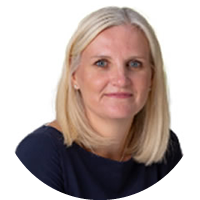
Helen Storr
Professor of Paediatric Endocrinology, Centre for Endocrinology, William Harvey Research Institute, Barts and the London School of Medicine, Queen Mary University London, London, UK
Helen Storr is a Professor and Honorary Consultant in Paediatric Endocrinology at Queen Mary University London (QMUL) and Barts Health Trust, London. She completed a PhD in molecular endocrinology at the William Harvey Research Institute, Barts and the London School of Medicine funded by a Wellcome Trust Research Training Fellowship. In 2006, she was awarded a HEFCE Clinical Senior Lectureship and was appointed Senior Clinical Lecturer at QMUL and Honorary Consultant in Paediatric Endocrinology at Barts and the Royal London Hospitals. Professor Storr was awarded the 2011 European Society for Paediatric Endocrinology (ESPE) Young Investigator Award and an NIHR Advanced Fellowship in 2019.
Professor Storr’s clinical paediatric endocrine practice is broad with key clinical interests in disorders of growth and puberty, paediatric Cushing’s syndrome and adrenal disorders. She leads an active programme of clinical and laboratory research and directs an international genetic diagnostic service for patients with undiagnosed short stature. Her current research focuses on the recognition and diagnosis of growth disorders in children. She is medical advisor for the Child Growth Foundation (CGF) and Chairs the BSPED Growth Disorders Special Interest Group.
Disclosures
Professor Storr has received grants/research support from Sandoz UK and honoraria or consultation fees form Pfizer, NovoNordisk and Sandoz. She is on the Steering Committee for Recordati.
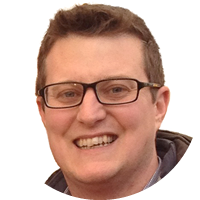
Ian Tucker
Paediatric Endocrine Bone Clinical Nurse Specialist, Bristol Royal Hospital for Children, Bristol, UK
Qualifying as a paediatric nurse at University of Wales College of Medicine in 2003, Ian Tucker has taken on a plethora of roles up to the current day. Ian began his career in acute medicine in Cardiff, but soon migrated to Bristol where he began his interest in endocrinology, assisting in the clinic. He spent a short period as a school nurse and rheumatology nurse specialist, before moving on to more senior roles eventually managing the medical ambulatory departments of the Bristol Royal Hospital for Children. From here, Ian further developed his interest in endocrinology and bone health and took the nurse specialist role in this area in 2014 with an emphasis on Osteogenesis Imperfecta. The role has expanded more recently with the advance in treatments in paediatric bone conditions and he now finds himself dealing with a diverse range of endocrine bone conditions.
Ian is the former Co-Chair of the United Kingdom Rare Bone Nurses Network for the United Kingdom and Northern Ireland (RBNNUKI), which was formed on the back of the need to share knowledge and experience of working in this field.
Disclosures
Medical Advisory and Presentation for Kyowa Kirin, Pharmaceuticals.
About IMAGE 2022
At the end of the programme, you will understand:
- The epidemiology of paediatric gender dysphoria and its major clinical features
- The principles of early management and the major clinical guidelines underlying management of patients with gender dysphoria
- The main physiological principles of disorders of the calcium-phosphate system and how and when bone physiology can be disturbed
- How long-term illness can influence or impair bone health
- The principles behind the treatment of problems such as osteopaenia
- Common bone disorders such as vitamin D deficiency
- The underlying cause of skeletal dysplasias such as achondroplasia, and the principles behind current treatment
- How human growth hormone (hGH) developed, why it is effective and how treatment has evolved
- Why recombinant hGH has had such wide acceptance and usage
- About the future use of long-acting hGH and see how clinical practice might be changed
- The advances that have been made by genetic studies in short children and in the context of cost-benefit analysis
- The reasons for a balanced approach to short stature, using both genetic and clinical assessment
This independent programme is made possible thanks to an educational grant received from Merck Healthcare KGaA, Darmstadt, Germany.
All content has been developed independently by Springer Healthcare IME, in collaboration with the expert Faculty.
Email: [email protected]
Springer Healthcare IME
The Campus, 4 Crinan Street
London, N1 9XW, UK

